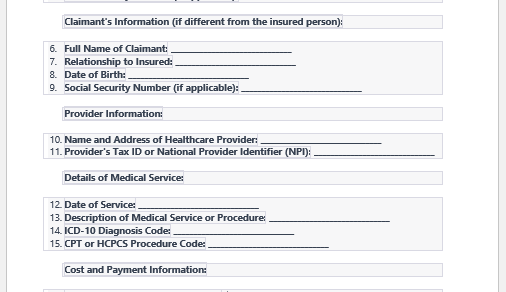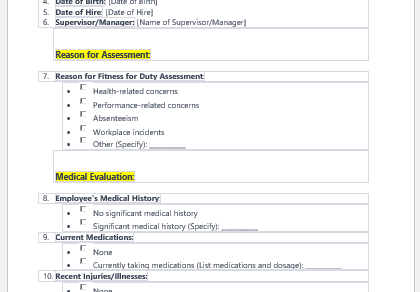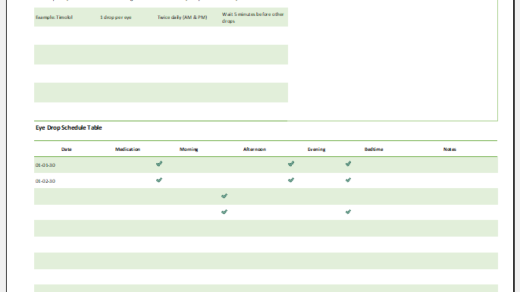The kidney is one of the most important organs in the body. It takes part in several important functions, for example, detoxification, erythropoiesis, and many others. Production of urine and reabsorption of important minerals are the most important functions of the kidney, along with those of other urinary tracts.
The urinary tract starts with the kidney, from where the pelvis takes the urine and transports it to the urinary bladder through a pair of ureters connected with each renal pelvis on either side. The urinary bladder once filled to a certain level, empties through the urethra, which is a voluntary function in human adults supported by sphincters.
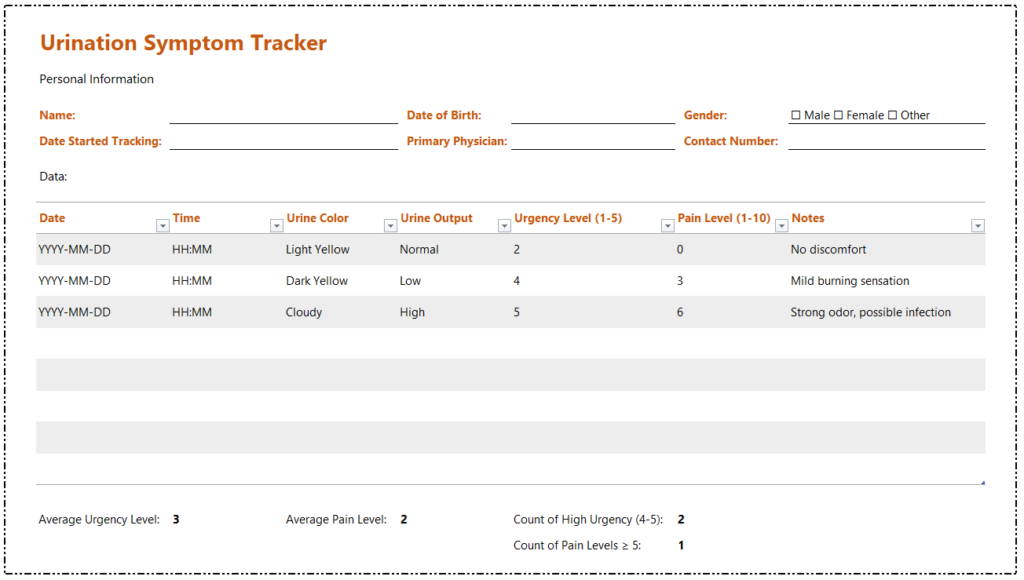
Causes of urinary symptoms
- Any infection, injury, tumor, or blockage of the urinary tract results in an inefficient performance of their normal function, causing clinical signs and symptoms.
- The most common cause of urinary symptoms is a urinary tract infection. The urethra, especially the female urethra, is more susceptible to infections due to its shorter length and location.
- Once bacteria invade the urinary tract, they start affecting the rest of the urinary tract in a retrograde manner.
- Infection may spread from the urethra to the urinary bladder and then to the kidney through the ureters and renal pelvis.
- If the kidney starts getting infected, further loss of function occurs, and if left untreated, it may result in serious kidney infections and damage.
- Infection of each organ in the urinary tract has its name; for example, an infection of the urinary bladder is called cystitis, and inflammation of the kidney is called nephritis.
- Similarly, injury anywhere in the urinary tract also results in inflammation and manifests as urinary symptoms
- Renal stones, tumors, or any blockage of the urinary tract cause reflux, inflammation, pain, and discomfort for the patients.
Common urinary symptoms
The urinary symptom is a general term used for the symptoms associated with the inflammation and infection of the urinary tract.
Some of the most common urinary symptoms that patients present with are:
Dysuria
Dysuria is the most common presentation in people with urinary tract pathology. By far, the most common cause of dysuria is a urinary tract infection. Renal stones may also locally irritate the region, especially if the stones are present in the bladder or urethra.
Urinary frequency
This is also commonly associated with urinary tract infections. Urinary frequency is commonly seen in pregnancy due to pressure symptoms in the gravid uterus.
Abdominal pain
Abdominal pain, both local and generalized, is experienced by the patient, but the physician has to be vigilant enough to differentiate and rule out other causes of the pain. Flank pains are usually presented by patients.
Hematuria
Blood in urination, or hematuria, is seen with renal stones causing local irritation and damage to the urinary tract. It can also occur in cases of tumors of the urinary tract.
Urinary symptoms tracker
A urinary symptoms tracker is used to assess the extent and frequency of the symptoms mentioned by the patient and rule out different causes of urinary symptoms. It has proved to be helpful in this regard.
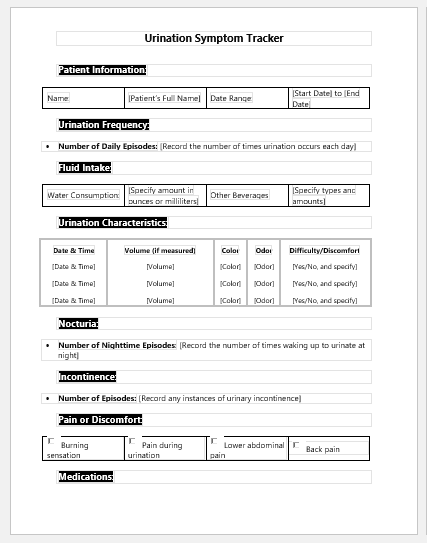
- Trackers for Medical Facilities
- Nursing Documentation Templates
- Letters for being Unfit to Travel
- Mental Health Evaluation Forms
- Forms Used by Pediatricians
- Various Forms Related to Pregnancy Verification
- Common Forms Used by ENT Specialists
- Patient Registration Confirmation Messages
- Quotation Letter for Medical Services
- Mental Health Letter by Doctor
- Excuse Letter for Absence due to Medical Checkup
- Response Letter to Feedback on Improvement in Hospital
- Letter to a Mother Who Miscarried
- Patient Feedback Letter Complaining on Issues or Incidents
- Letter to Family about Miscarriage
